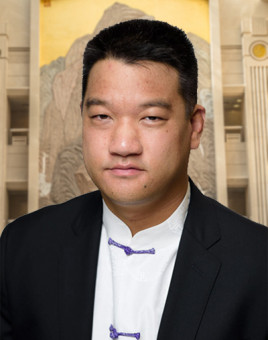
What are you up to these days?
I am currently an associate at the Reynolds Defense Firm (RDF), with a focus on DUII litigation.
How did you get your job?
I took the February 2019 bar and passed, which gave me an edge with fewer applicants in the market. I was interviewing while others were studying and waiting for their bar results. I applied to positions that interested me and took a contact attorney position at a personal injury firm, to learn some of the trade and pay the bills.
I kept checking the L&C job listings from Career Services and wound up interviewing for Reynolds Defense firm (RDF) and a judicial clerkship for Judge Steffan Alexander on the same day. I received offers from both prospective employers on that day, and accepted the offer from Reynolds. I’d had my eye on RDF ever since the first day of law school.
In hindsight, I suspect that Judge Alexander knew that I’d receive the offer from Reynolds, and that his extending an offer first would make me more attractive to Reynolds defense. It’s something that I will be forever grateful to Judge Alexander for.
What advice would you give to a graduating student who's looking for a job?
1. If you be what other people be, you get what other people get. When I read the RDF ad for associate attorney, I detected a certain sense of self-deprecating humor in the text. So, against all the rules, I responded with humor in my cover letter. I figured: I’m either going to get this job or I’m not, so I’m going to put 100% of me into this cover letter and regret nothing.
The firm owner later told me that he chose me for an interview because, out of all the thousands of cover letters that he’s ever read, mine was the only one that made him laugh. Game recognize game.
2. If you want to find a place that wants to hire you, and not a generic attorney, then you have to have the courage to apply, and interview as yourself.
If you’re struggling with confidence and coming up with questions at an interview, remember: They’re interviewing you, but you’re interviewing them too.
This is going to do two things: first, your questions will come from a point of self-interest and passion. You’ll be able to follow-through with additional original, dynamic, and interesting questions because you’re interested, not because you’re trying to impress. Second, if you’re applying for a litigation job you’ll be showing that you have some spine, stand up for yourself, and get the answers you want in a diplomatic, but firm manner.
If you can’t come up with any questions before or during the interview, that’s a really strong sign that this isn’t the right place/time for you.
3. Practice telling the stories that show your life is interesting. Law is a wisdom tradition that uses parables to illustrate principles. That’s why we read cases, which come to stand for legal lessons.
The story proves the lesson: your life is no different.
Want to show that you don’t give up? Don’t talk about not-being-a-quitter (boring!). Talk about that time you failed to qualify for varsity as freshman, as a sophomore, and then as a junior, and finally made it as a senior. Want to show that you can problem solve? Tell that story about the difficult customer who everyone hated waiting on, but came to be your personal best friend and habitual high rolling tipper.
You’ve trained in law school to learn the value of “because.” Your stories are your “because.” You’ve learned/experienced/mastered X, because…
These stories are what stick with us as listeners, because we learn principles in the context of narrative. Stories make your points tangible. You’ll benefit in two ways from this. First, you’ll prove to interviewer that you learned the lesson because that interviewer will know not just the “what,” but also the “how” and maybe the “why.”
Anybody can spout platitudes, but until you have the story/scars to back it up, it’s just pretty words to me. Second, by teaching your story to the interviewer, you interview becomes transferrable. That is, your story can be retold at the water cooler, at committee, at the bar, and in the boardroom—that instantly makes you much more colorful and memorable than the otherwise bland candidates that are just an amorphous pile of mildly-attractive grades and statistics. And now, other people at the firm that you didn’t interview with can be impressed with you as well.
The Development & Alumni Office is located in room #301 of Legal Research Center on the Law Campus.
MSC: 51
email lawalum@lclark.edu
voice 503-768-6890
The Development & Alumni Office
Lewis & Clark Law School
10101 S. Terwilliger Boulevard MSC 51
Portland OR 97219